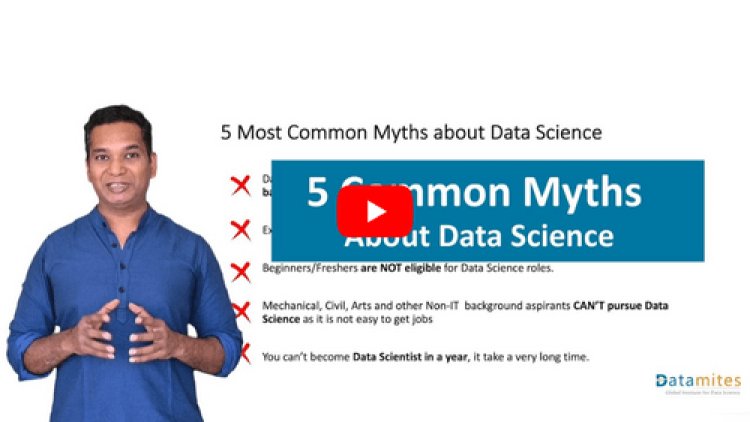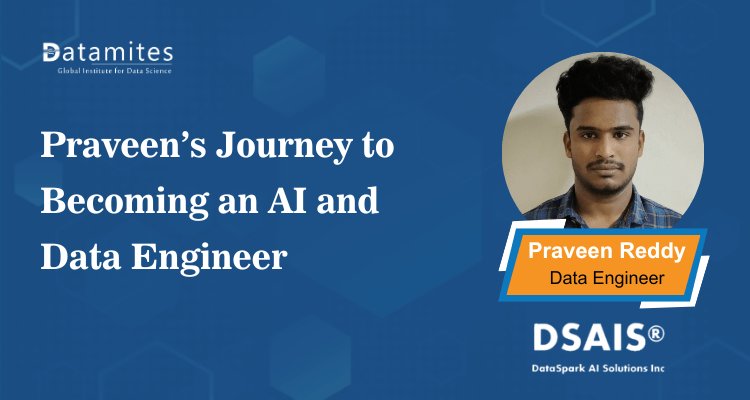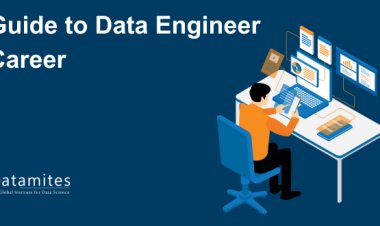How to Become a Data Scientist in the UAE?

The career scope of data scientists in UAE is highly promising, as the country places significant emphasis on digital transformation and technology-driven innovation. With a growing demand for data-driven insights and advanced analytics across industries, data scientists have abundant opportunities to contribute their expertise in extracting meaningful insights from large datasets, driving informed decision-making, and addressing complex business challenges. This, in turn, opens avenues for professional growth, lucrative career prospects, and the potential to make a substantial impact in the UAE’s evolving technological landscape.
Introduction
The United Arab Emirates (UAE) presents a compelling data science opportunity with its thriving economy, technological advancements, and emphasis on innovation. The UAE’s commitment to digital transformation, smart cities, and data-driven decision-making creates a fertile environment for data scientists.
According to a report by Grand View Research, the data science market is projected to experience a significant growth rate, with a compound annual growth rate (CAGR) of 26.9% from 2020 to 2027. With numerous industries such as finance, healthcare, energy, and logistics seeking to harness the power of data, professionals in this field can contribute to groundbreaking projects, drive business growth, and shape the future of the UAE’s data-driven landscape.
Who is a data scientist?
A data scientist is a professional who uses their expertise in mathematics, statistics, programming, and domain knowledge to extract meaningful insights and knowledge from vast amounts of structured and unstructured data.
According to an IBM report, the field of data science is expected to witness a significant growth rate of 30%, resulting in approximately 2,720,000 job openings by the year 2023. They employ various tools, techniques, and algorithms to analyze, interpret, and visualize data, with the goal of uncovering patterns, trends, and actionable insights that can drive informed decision-making and solve complex business problems.
Data scientists play a crucial role in transforming raw data into valuable information, enabling organizations to optimize processes, identify opportunities, mitigate risks, and gain a competitive advantage in today’s data-driven world.
Read these articles:
- How To Become Data Scientist In India
- How to Become a Data Scientist in United States?
- How to Become a Data Scientist in Switzerland?
What is the career opportunity for data scientists in UAE?
Data scientists in the United Arab Emirates (UAE) can expect promising career opportunities, particularly in terms of salary. The demand for data scientists is high in the UAE, driven by the country’s strong emphasis on technological advancements and digital transformation. As organizations across various sectors, including finance, healthcare, retail, and telecommunications, increasingly rely on data-driven decision-making, the need for skilled data scientists continues to grow.
Consequently, data scientists in the UAE can enjoy competitive salaries, often well above the national average, reflecting the value placed on their expertise and the significant contributions they make to businesses success through data analysis and insights. The salary of a data scientist in UAE ranges from AED 390,000 per year according to a Salary Explorer report.
Furthermore, data science careers in the major cities of the UAE have become increasingly popular, and the remuneration packages offered are notable.
The salary of a data scientist in Abu Dhabi ranges from AED 1,70,100 per year according to a PayScale report.
The salary of a data scientist in Dubai ranges from AED 12.0 LPA according to the Ambition Box report.
The salary of a data scientist in Sharjah ranges from AED 88428 per year according to a Glassdoor report.
What is Data Science
How to choose the best data science course in UAE?
Choosing the best data science course in UAE involves considering several factors to ensure you receive quality education and relevant skills. To assist you in making an informed decision, here are some steps to consider:
- Define your goals: Determine your specific career objectives in data science. Are you looking to enhance your existing skills or start from scratch? Identifying your goals will help you choose a course that aligns with your needs.
- Research course content: Thoroughly examine the course syllabus and curriculum. Look for courses that cover essential topics in data science, such as statistical analysis, machine learning, data visualization, and programming languages like Python or R. Ensure the course provides a comprehensive understanding of the field.
- Consider practical components: Practical experience is crucial in data science. Look for courses that offer hands-on projects, case studies, or internships. Practical application of concepts will help you gain real-world skills and build a portfolio of projects.
- Consider flexibility and mode of delivery: Assess whether the course offers flexibility in terms of schedule and mode of delivery. Online courses, part-time options, or evening classes may be suitable if you need to balance your studies with other commitments.
- Real-Time Experience: Opt for a course that offers opportunities for real-time experience. Look for programs that include practical projects, case studies, or internships where you can apply your data science skills to real-world scenarios. This hands-on experience will reinforce your learning and make you job-ready.
- Practical Application and Real-time Projects: Opt for a course that emphasizes hands-on learning and offers opportunities to work on real-time projects. Practical application of concepts through projects will enhance your skills and give you a taste of real-world data science challenges. Ensure the course offers a balance between theory and practical experience.
- Internship Opportunities: Consider courses that provide internship opportunities as part of their curriculum. Internships allow you to gain practical experience, apply your skills in a professional setting, and build a network of industry contacts. Internship opportunities can greatly enhance your learning and job prospects.
- Career Guidance: Career guidance: Opt for a data science course that provides career guidance and support. Look for programs that offer mentorship, job placement assistance, or access to industry networks. A course that helps you navigate the job market and offers guidance on building a successful data science career can be invaluable in achieving your professional goals.
- Interview preparation: Choose a data science course that includes interview preparation as part of its curriculum. Look for courses that offer guidance on technical interviews, data science case studies, and coding challenges. This preparation will help you gain the necessary skills and confidence to perform well in data science job interviews and increase your chances of securing a desirable position.
Read the following articles:
- Data Science Job Roles, Salary Structure and Course Fees in the UAE
- Data Science Jobs, Salaries, and Course fees in Dubai
- Data Science Job Roles, Salary Structure, and Course Fees in Canada
Why DataMites for the best data science course in UAE?
DataMites is a renowned training institute offering a comprehensive data science course in UAE. With a duration of 8 months and 700 hours of learning, the program covers data analytics, data engineering, AI, ML, and deep learning. Accredited by IABAC, students receive a certification upon completion. Emphasizing industry trends, DataMites equips students with up-to-date skills for their desired career paths. DataMites offers an exceptional Certified Data Science course in UAE that provides extensive and thorough learning opportunities in the field.
DataMites is renowned for its excellent data science courses in the UAE for several reasons:
- Ashok Veda and Faculty: DataMites boasts a faculty led by Ashok Veda, a widely respected AI expert with global recognition and an extensive background of 19 years in analytics and data science. He leverages state-of-the-art AI techniques to address intricate business challenges and derive valuable insights from data. Under his guidance, DataMites ensures that students receive a top-notch education in the field of data science, guaranteeing the highest quality of learning.
- Comprehensive Curriculum: DataMites offers a comprehensive curriculum that covers all the essential aspects of data science, including statistics, machine learning, data visualization, predictive modeling, and more.
- Hands-on Training: DataMites emphasizes hands-on learning, providing students with numerous practical exercises, projects, and case studies. This approach enables students to gain practical experience in applying data science techniques to real-world problems, enhancing their skills and confidence.
- Industry-Relevant Skills: The data science courses at DataMites are designed to equip students with the skills and knowledge that are in high demand in the industry. The curriculum is regularly updated to incorporate the latest trends, tools, and technologies in data science, ensuring that students stay ahead in their careers.
- Certification: DataMites provides industry-recognized data science certifications in UAE upon course completion, which adds value to a student’s profile.
- Flexibility and Convenience: DataMites offers online data science training in UAE, allowing students to choose the mode of learning that suits their schedules and preferences. This flexibility makes it easier for working professionals or individuals with other commitments to pursue the course.
Certified Data Scientist (CDS) Program
End Note
The future scope of data scientists in the UAE is promising, with increasing demand across various industries for professionals skilled in data analysis, machine learning, and Artificial Intelligence. As the UAE continues to invest in digital transformation and emerging technologies, data scientists are expected to play a crucial role in driving innovation, making data-driven decisions, and solving complex business challenges, thus creating ample opportunities for career growth and advancement in the field.
Refer these articles:
Why PyCharm for Data Science
5 Common Myths about Data Science









